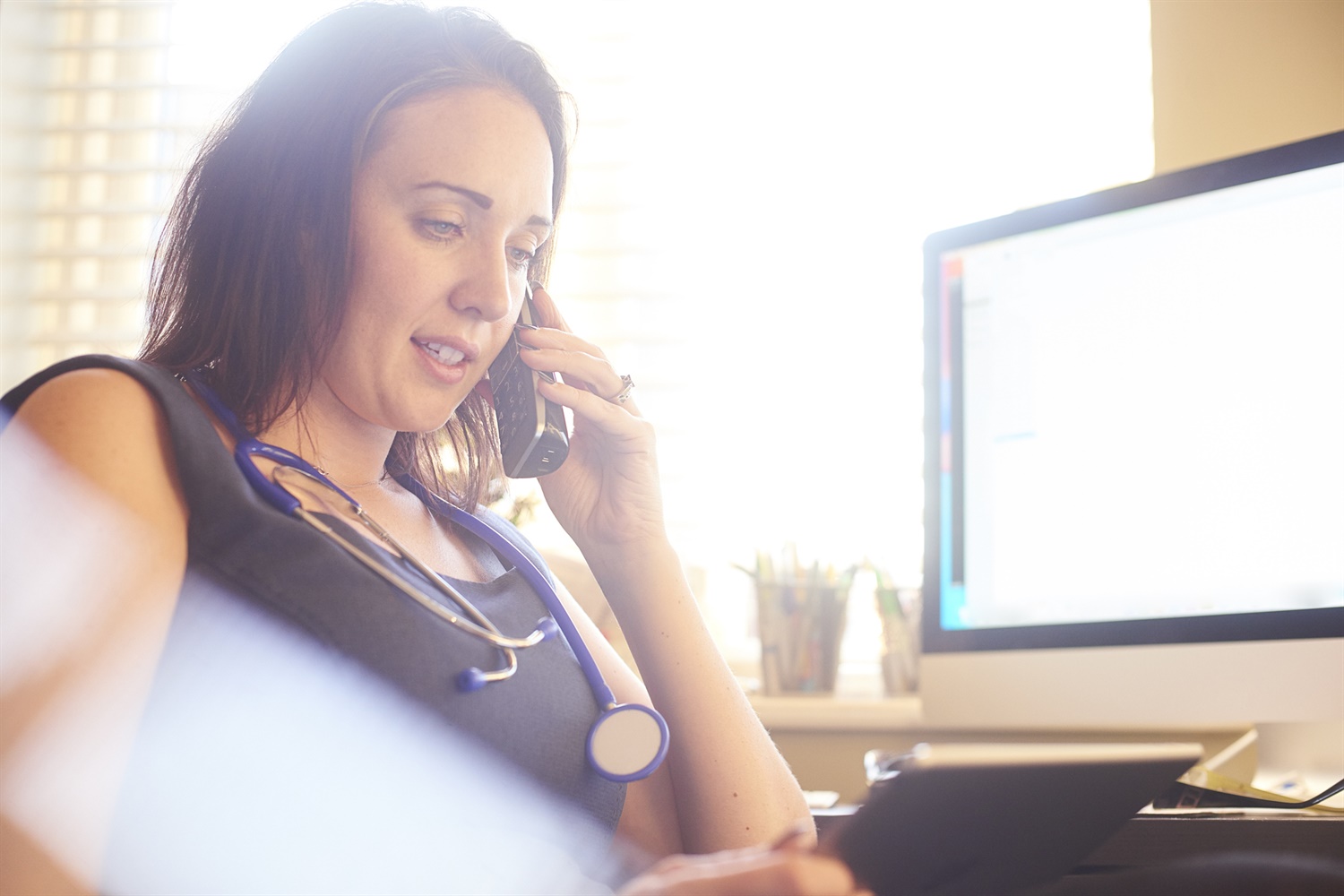31.07.20
RCGP survey data gives snapshot into how GP care is being accessed
Following survey data which demonstrated how GP care is being accessed in the most recent stages of the coronavirus pandemic, the Royal College of GPs has urged post-Covid there must still be provisions for patients to access services in ways which meet their health needs and preferences.
The data, which came from a survey of 829 GPs across the UK by the RCGP in July 2020, demonstrated a significant shift towards remote consultation with 61% of GP appointments being conducted by telephone, with a further 16% spent doing telephone triage.
Just 11% of appointments were conducted face-to-face, 6% by SMS or email, 4% online via video and 3% were home and care home visits.
As part of this ‘technological revolution’ witnessed in general practice as a result of the virus, even though the data showed just 4% of consultations overall were reportedly being done by video, the survey also found that 88% of respondents said their surgery was equipped to deliver video or e-consultations (compared with just 5% prior to the pandemic) and 74% said they had done at least some consultations in this way.
When asked about the efficiency of delivering consultations remotely, 70% of respondents said telephone consultations increase efficiency, while 67% said video or e-consultations do so. Furthermore, 76% of respondents said that GP-led telephone triage increases efficiency, 66% said non-GP triage and 65% said online triage increased efficiency respectively.
However, as lockdown restrictions begin to ease, demand for face-to-face consultations is once again rising – having increased by 40% over the last eight weeks, in comparison to just a 4% increase in demand for telephone consultations.

In response to the data, Professor Martin Marshall, Chair of the Royal College of GPs, said: “The increase in telephone triage and consultations we have seen during the Covid-19 pandemic has been out of necessity – and in line with official guidelines. That isn’t to say there aren’t lessons to be learnt from the new ways we have been working in general practice. The pandemic has shown care can be delivered effectively and safely remotely, where appropriate.
“Telephone consultations are, of course, not new, but before the pandemic they accounted for around a quarter of consultations – during the pandemic, it’s been more like 70%, with face to face appointments reserved for those patients who really needed them. We’ve also seen an increase in video consulting, with almost 90% of GPs telling us their practices are now video-enabled, even though these account for a small proportion of consultations overall.
“Telephone consulting can be convenient for many patients – and as our survey results show, many GPs who have been doing telephone triage or consultations more frequently than usual during the COVID-19 pandemic have found them an efficient way of delivering care. They can also improve access to some of our harder to reach patients – those for whom the actual act of visiting a GP surgery can be a barrier to accessing care, which can include patients with mental health conditions.
“Telephone consulting does pose a challenge for GPs, not least the lack of visual cues that we often use to help us make a diagnosis – we can’t do physical exams over the phone, we can’t give vaccinations or take blood tests. It’s a different skill to face to face consulting, but it can be effective, especially for patients with simple conditions. The biggest challenge is when patients have complex health needs as being in the same room as a patient, often who you have built up a relationship with over time, is incredibly useful and difficult to replicate remotely.
“Remote consultations, whether by telephone or video, won’t be suitable or preferable for everyone, and that certainly isn’t what the College is suggesting. We’ve already seen face to face appointments increasing, with a 40% increase over the last eight weeks according to figures from our Research Surveillance Centre, while demand for telephone consultations has only risen 4%. Once more normal service resumes in general practice – and we await official guidance on this – patients who want face to face appointments will be able to have them. We want patients to be able to access GP services in the way that is best for them and best meets their health needs.”